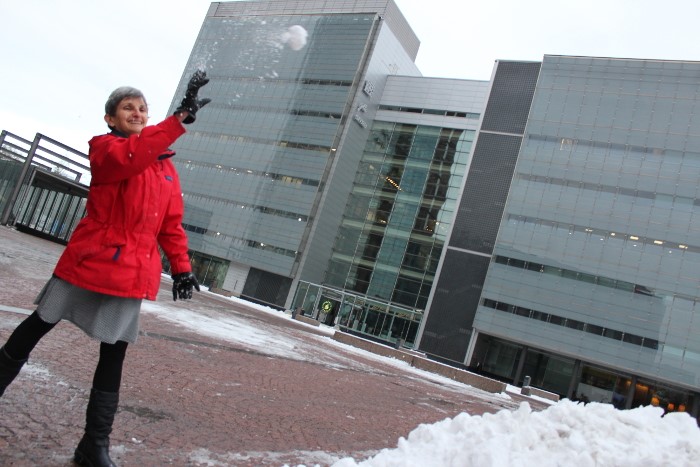
Climate change will shake up the insurance sector in the coming decades. Communicating the sector’s global concern for climate change, Canadian actuary Caterina Lindman has been leading the development of the Actuaries’ Climate Index. We
interviewed her during her stay in Finland in early November.
”Climate change will affect the insurance sector in two ways”, explains Caterina Lindman, an actuary with 35 years of experience in the Canadian insurance industry. ”Natural disasters will increase non-life insurers’ claims costs, obviously, but both life and non-life insurers will also have to account for climate risks and effects in their investment operations.”
If we want to stop climate change, we need to stop using non-renewable energy sources, even if they are available. This will lead to substantial changes in the financial markets, as companies that utilise non-renewable energy will become less and less profitable to invest in. Even though there is no binding regulation in place yet, some insurance companies have already started to expunge so-called coal investments from their portfolios. In this way the financial sector takes an active role in sustainable development.
Environmental risks into production costs
It has been suggested that an efficient way to make production more environmentally considerate would be to collect insurance contributions according to the actual environmental risks of each company. This would discourage some high-risk businesses such as oil drilling, nuclear energy production or mining by making them considerably more expensive or even unprofitable.
Lindman notes that some large companies may also face legal risks. ”It may be possible for large oil companies to get sued for their contribution to climate change and environmental damage, for example.”
EU is combating climate change with insurance
The European Union has begun researching ways to use insurance as a means to include environmental risks in companies’ production costs. This involves reviewing the methods of insuring against natural disasters, the cost-effectiveness of insurance mechanisms, and the ways insurance mechanisms could steer companies towards more environmentally friendly and less risky decisions.
The European Commission is also in the process of founding a High Level Expert Group on Sustainable Finance. The group will be tasked to issue recommendations for the Commission on making investments more sustainable. The group will also try to find ways to avoid economic crisis when CO2-intensive energy sources will be limited.
Esko Kivisaari, Deputy Managing Director of the Federation of Finnish Financial Services, has been accepted to join the expert group. The group will consist of 20 or so members representing the business sectors and the civic society.
The Actuaries’ Climate Index measures climate change in insurance context
Caterina Lindman has been developing the Actuaries Climate Index for eight years. The ACI is a way to calculate climate change in various regions. The model compares historical data and measures region-specific changes in climate extremes in a way that is easy to understand without being overly simplistic. Measurements include unusually cold and hot temperatures, high precipitation, drought, high wind and coastal sea level. So far, data has been collected from all of US and Canada.
The Actuaries’ Climate Risk Index has been derived from ACI by combining the climate information with regional population information. This calculation takes also mortality and claims costs into account. Whereas ACI answers the question ”does climate change occur”, ACRI answers the question ”does climate change occur where people and property exist”. According to Lindman, the index has aroused interest mainly in the non-life insurance sector.
Still have questions?
|Contact FFI experts



